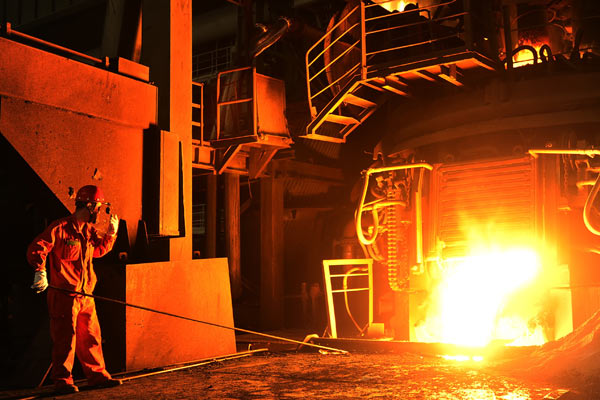SOEs will be pressed to produce


State Council leaders to streamline administrative operations of some
China will press ahead with the reform of State-owned enterprises to provide a greater driving force for high-quality economic development with State capital, according to a decision made by those at the State Council executive meeting chaired by Premier Li Keqiang on Wednesday.
The meeting participants-who heard a report on the reform, supervision and inspection of central SOEs by the Supervisory Board of Key Large State-Owned Enterprises-decided that the management system of State-owned assets will be improved. In addition, it was decided a list of powers and obligations on State assets supervision and management will be formulated to enable precise category-by-category supervision. Enterprises will be given effective autonomy in their operations as the government deepens the reform to streamline administration, enhance compliance oversight and provide better services.
Solid steps will be taken to cut outdated excess capacity, and the issue of "zombie enterprises" will be handled in a timely fashion. Deleveraging the SOEs and reduction of corporate debt will be prioritized to keep risks under control, meeting participants decided.
China's SOEs registered total business revenue of over 41.9 trillion ($6.3 trillion) yuan in the first 10 months of this year, up by 15.4 percent year-on-year, and made 2.39 trillion yuan in profit, up by 24.6 percent, according to the Ministry of Finance.
Meeting participants decided to bring forward the improvement of sectoral distribution, structural optimization and strategic reorganization of the State-owned sector. State capital will be mainly channeled into key sectors and areas that are vital for national security, the overall economy and people's livelihoods, as well as major infrastructure development.
Another focus of the reform is to develop a corporate legal person governance structure with effective checks and balances and establish a flexible and efficient market-oriented management mechanism. The reform to introduce a shareholding system into the central SOEs will be pushed forward, and investors of various types will be brought in to enable stock rights diversification.
For the SOEs whose main business portfolios are in fully competitive sectors, efforts will be made to explore the introduction of a mixed ownership structure.
"The reform has enabled SOEs, especially central SOEs, to achieve an upturn in their business revenue, which reached the highest level in five years," Li said. He said the SOEs must earnestly address problems identified in the supervision and inspection process.
The oversight on the operation of State capital will be reinforced, as well as the inspection of overseas State assets, and stringent accountability will be enforced, those at the meeting decided.
"Relevant State Council departments must actively support the SOE reform, and further pursue the streamlining of administration, enhanced compliance oversight and provision of better services to help enable the high-quality development of SOEs and ensure the security and good returns on State assets." Li said.




































